- Home
- Daphne Du Maurier
Hungry Hill Page 2
Hungry Hill Read online
Page 2
Across the park they went and through the second gate, past the belt of trees that his grandfather had planted, past the rhododendron bushes that had been the pride of poor Sarah and were now watched so tenderly by her daughters, and down on to the smooth gravel ride beside the creek and the sunk garden, through the archway of stone, and so back to where the sweep on the ride ended before the grey walls of Clonmere Castle.
The Brodricks dined at five, and by the time John Brodrick had washed and changed his travelling clothes, dinner was upon the table, with his family assembled round it, ready to welcome him after his week's absence in Slane and Mundy. His wife Sarah had died some years previously, and his eldest daughter Barbara now filled her mother's place at the end of the table. She came forward to kiss him, her example followed by her two sisters, Eliza and Jane. Henry, John Brodrick's eldest son, had already welcomed his father on his arrival, and now stood by the sideboard sharpening the carving-knife in preparation for his father's attack upon the roast pig. Thomas, the serving-man, stood in attendance by his side. Before carving, John Brodrick said grace, and this formality disposed of, he proceeded to slice the meat on to the plates handed him by Thomas.
"Is it true, father," asked Barbara, "that there has been some horrible plot to assassinate the Cabinet Minister during his tour of the country?"
"I fear it is only too certain that there was some such plot," answered her father, "but luckily it was discovered in time, and no harm done. The whole affair must have been inspired by some of the dregs of the people, and whoever was responsible will be brought to justice. There was talk of little else in Slane, needless to say. It will have some effect at the elections."
"And is Mr. Hare to stand for the County again?" asked Henry.
"I understand so. Which reminds me, Henry, there is something you can do on the occasion. You can tell all my freeholders to hold themselves ready to vote as I wish them, and if any should absent themselves on the day without valid excuse of ill-health, he will find himself without a roof over his head."
"I can vouch for one or two," laughed Henry, "who will find themselves stricken with fever when the time comes, and the priest by the bedside."
"The Reverend Father will keep himself scarce, and out of trouble, if he has any sense," said John Brodrick, and he took his place at the head of the table.
The empty chair by his side caused him to frown.
"John is late again," he said. "Did he not know I was returning?"
"I believe he went across to the island," said Barbara swiftly. "He wanted to arrange a day's shooting with one of the officers in the garrison.
Perhaps he has had some difficulty in bringing the boat back."
"I will not stand unpunctuality from anyone, and certainly not from a nineteen-year-old boy," said her father. "Clonmere is not Andriff Castle, and I have not the careless go-as-you-please temperament of Simon Flower.
You can all of you remember that. Kindly teach your brother better manners, Henry. I thought civility the least you would learn at Eton and Oxford."
"I'm sorry, sir," said Henry, exchanging a glance with his sister.
"John has never had any idea of time," complained Brodrick's second daughter Eliza, who thought, by seeming to side with her father, to find some favour. "He was still fast asleep at breakfast this morning — Thomas had to call him twice."
The unfortunate John, entering at this moment, found all eyes upon him in sympathy, excluding Eliza's and his father's, and, hastily making his excuses and flushing scarlet as he did so, he took his seat at the table and added to the misery by spilling the gravy on the cloth.
"Curious," observed his father drily, "how a prolonged stay in this country makes a boor of a fellow, so that he dribbles his very food. Your friends at Brasenose College would hardly recognise you. However, let us talk of other things. Thomas, you may leave us. Master Henry and Master John will wait upon the ladies. No, the fact of the matter is," he said deliberately, looking round at his children, when the servant had left the room, "I have something to tell you all, concerning the future."
He laid his knife and fork upon his plate, smiling at Henry as though in confirmation of some previous conversation, while the rest of his family waited for him to continue.
It was a proud moment for John Brodrick. For months now, ever since the possibility of extracting the copper from Hungry Hill had become a certainty in his mind, he had thought and dreamt of little else. He had set himself the task of breaking down the apathy and mistrust of his neighbouring landlord with determination, for he knew that his capital alone would not cover the initial expenses. Besides which, the actual site of the mine was not entirely his possession. Part of the lands of Hungry Hill belonged to the Duncroom estate of Robert Lumley, and without his consent to form the company the mine could not be started. And at last old Robert Lumley had signed the agreement, and the work could begin. It was not, John Brodrick told himself, as he gazed proudly upon his young family, that he wanted a fortune for himself or for them. The money would come, he knew that, he took it for granted. Henry would live in comfort at Clonmere after him, and Henry's children. He would buy more land, plant more trees, build another wing on to the castle, and buy land the other side of the water too, should he have the mind.
No, it was the principle of the thing with which he had most concern. There was wealth in this country of his, ready for the taking, and only the laziness of his fellow-countrymen prevented them from enjoying it.
He looked upon it as a duty, something he owed to his country and to the Almighty, to glean the hidden wealth from Hungry Hill and to give it, at a price, to the peoples of the world. He glanced up at the portrait of his grandfather that hung above the mantelpiece in the dining-room, John Brodrick who had built Clonmere, and had been shot in the back in 1754 on his way to church, because he had tried to put down the smuggling along the coast. He knew his grandfather would have approved the starting of the mine. It would have been a matter of principle, just as it was for his grandson. Well, maybe the people would shoot him in the back as they had done the first John Brodrick, and maim his cattle, and set fire to his crops, but they would never frighten him from doing what he believed to be his duty. Smiling, he looked at each of his family in turn.
"This afternoon at Castle Andriff I signed an agreement with Robert Lumley, forming a company to work a copper mine on Hungry Hill," he said.
The young Brodricks stared back at him in silence, and he thought, with mingled pride and amusement, how like they were to one another, and how each one, from tall Henry down to the little Jane, although possessing features and a personality of their own, had the one characteristic in common, the unmistakable Brodrick quality of knowing themselves to have more brains and breeding than the usual run of their fellow-creatures.
He remembered his father Henry, who had broken his back out hunting at Duncroom, and how, when they would have carried him on a hurdle to a neighbouring cottage, to place him on a bed, he cursed them, saying, "God damn you, let me die in the open, in my own time," and they waited there, five hours under the rain, while he stared up at the sky.
And here was his own boy, Henry, twenty-one next year, with that same look of easy confidence in his dark eyes, as he smiled across the table at his father, the only one with whom he had already discussed the mining prospects, and who had shown his usual gay enthusiasm and willingness to help.
There was Barbara, twenty-three, and the eldest of the family, her soft brown hair falling over her forehead, which was wrinkled a little as she thought over the news, for Barbara needed time to consider when any new project was put before her; she was conservative by nature and mistrusted changes. Eliza, her sister, and a year younger than herself, stouter, fairer, and more like her dead mother in appearance, was already speculating upon what the future should bring for herself. Father would make a fortune, of course, and then perhaps they need not live all the year at Clonmere, but could visit Bath during the season, and even the Continent perhaps, as Lord
Mundy's daughters had done a year ago.
The Continent passed through Henry's mind too, as he watched his father's face. He loved Clonmere, he loved his family, and he believed that the sinking of the mine would be a sound proposition, workable in every way, and a benefit to the people and the country. If it meant that he would be able to go to France, to Italy, to Germany, to Russia, to see all the pictures and to hear all the music that he had heard discussed in Oxford, why then, the sooner Hungry Hill was open to pick and shovel and machinery the happier he would be.
His brother John stared out of the window, down to the creek below the house. He and his sister, Jane were the darkest of the family. There was something almost Spanish about their olive skins and their warm brown eyes, a southern gypsy quality that the others lacked.
Mines upon Hungry Hill, he thought, noise and machinery to drive away the wild birds and the rabbits and the hares, and a crowd of wretched devils working underground day after day, glad of the employment to keep themselves from starving, and cursing the master who gave it to them, all in the same breath. He knew how it would be. He had seen it happen before in Doonhaven, whenever his father talked to the people about progress. They were all smiles and civility to his face, and as soon as his back was turned they muttered amongst themselves, and went and broke down a fence, or stole a cow, or lamed one of his horses, in a strange, impotent resentment.
Oh, well, father would have his mine, and they would all become millionaires, and that was that. As long as he, John, was not asked to supervise the work at the mine, or take up any position of responsibility, he did not care, and if they would leave the summit of Hungry Hill untouched so that he could exercise his dogs there, and lie on his back in the sun, and be left alone without feeling all the time that his father was expecting him to do something, then the new company could sink a hundred mines for all he cared.
And Jane, who at eight years old was already the beauty of the family, petted but unspoilt, the darling of them all, with her lively imagination and strange fancies- Jane saw a great stream of copper running down the side of Hungry Hill, the colour of blood, and a crowd of miners dabbling in it like little black devils, with her father seated upon a throne like God in the midst of them.
"When do you propose to start the work, sir?" asked Henry.
"Within the course of the next month," replied his father. "The preliminary excavations may begin even sooner. I have someone coming over from Bronsea to supervise matters, and he will bring an engineer with him. We ought to be underground before midsummer, and with luck should have three months' trial of the mine before the autumn sets in. We don't want to lose the top prices, if we have anything to sell. But the return for the first two years is bound to be small, while we are paying off expenses."
"What about the labour, father?" said Barbara.
"I have engaged a Cornishman named Nicholson to be head captain of the mine," he answered, "and he will, of course, bring some of his own people over with him.
After that-well, we shall see."
There was a pause for a moment, and then Henry, glancing sideways at his father, said gently, "There will be a certain amount of resentment, sir."
John Brodrick rose from the table, and cut himself another slice of pig from the sideboard.
"Naturally there will be resentment," he said shortly. "There was resentment when the Post Office first came to Doonhaven, there was resentment when the Dispensary was opened. I expect nothing else. But when the people here learn about the wage-packets that the Cornishmen put into their pockets every week, then we shall hear another story. It's been a hard winter, hasn't it? Perhaps they will think about the winter to come.
I rather believe they will. And I shall get them coming up to Hungry Hill, asking for employment."
His son John frowned, picking at the table-cloth with his fork.
"Well, John, what is your opinion?"
The boy flushed. He was never very articulate in his father's presence.
"Yes, sir," he said slowly, "they will come to you for employment all right. But they will be bitter about it.
They will think, "Why should we be obliged to him to keep us from starving?"' It will make a twist in their minds, don't you see? And they will do their best to obstruct the work of the mine, even though it feeds them."
"You appear to sympathise with them," said his father.
"No, sir," stammered John; "it's only that, you see, even now, after all this time, we are looked upon as interlopers; there is no denying it."
"That is ridiculous," answered his father impatiently; "we belong to the country as much as they do. Why, your great-grandfather lived here, and your great-uncle before him. There have been Brodricks in. the country back into the sixteenth century."
"Why did they shoot my great-grandfather, then?" asked John.
"You know very well why they shot him-because he believed in doing his duty to God and the King, and upholding the law. Smuggling was an offence, and he was determined to put an end to it."
"No, sir," said John; "that was just the excuse given. The Donovans shot my great-grandfather because the land here was theirs, before it was his, because the old Donovan chiefs possessed Clonmere, and Doonhaven, and Doon Island when the Brodricks were copying-house clerks in Slane, and they could not forget it. And they haven't forgot" ten it, even to this day. That's why Morty Donovan lets his tenants steal your cattle, and that's why your Cornish miners will stay one season on Hungry Hill, and no longer."
There was a silence, John Brodrick did not answer. He stared thoughtfully at his second son, while the rest of the family, astonished at their brother's outburst, sat in trepidation, scarlet and ill at ease.
"Very good, John," he said at length. "Eton and Brasenose have done more for you than I thought. A few years in London, at Lincoln's Inn, and they will make quite a speaker of you. And now, Barbara dear, if you have finished, I suggest we leave the room for Thomas to clear, and perhaps you will pour out tea in the drawing-room."
"Yes, father," said Barbara, and glancing reproachfully at John for the disturbance he had caused, she led the way upstairs to the drawing-room, where the serving-man had already placed the tea-tray in readiness.
"Silly fellow," said Henry, patting his brother on the shoulder, for their father had not yet come upstairs; "what induced you to speak so, at such a time? You know the irritation it causes my father just to mention the Donovans. And to damp his ardour, too, about the mine."
"John dear, it was thoughtless," said Barbara, "especially when you were late for dinner too. Now you will be in his bad books for a week at least."
"Oh, confound everything," said John wearily, throwing himself into a chair. "Why do I never do anything right? And why does everyone, myself included, always dislike hearing the truth? You don't think I like the Donovans, do you? Old Morty Donovan's a scoundrel, I know that."
He held out his arms to Jane, who came and sat on his knee, her arms round his neck.
"What shall we do, sweetheart? Shall we run away together, and build a little cabin on Doon Island?"
"It would be horrid in the winter," said Jane, laughing, and playing with his collar; "you would soon become ill-humoured, and vent it upon your Jane.
Henry would endure discomfort better than you."
"Henry endures everything better than I do," sighed John, "don't you, old fellow? You attend all the lectures at Oxford with the greatest equanimity, and are on breakfasting terms with half the dons. He has a visiting list of acquaintances, too, nearly a yard long. The only fellows who visit me in my rooms are tradesmen, or sporting chaps wanting to sell me a dog."
"Do you suppose," broke in Eliza, "that once the copper mine starts paying we shall all be very rich?"
"So rich, Eliza," said Henry, winking at John, "that all the impoverished Earls of the country will come from miles around to court you. You had better start planning your wardrobe soon. Poor Mrs. Murphy will have to get in a good stock of needles and thread an
d material."
"Mrs. Murphy," scoffed Eliza; "thank you very much. I shall purchase my dresses in Bath or Cheltenham, I shall never go to Mrs. Murphy again."
"That would be rather unkind," said Barbara. "We could always allow her to make some of our things. She tries so hard to do her best, poor woman. You could keep your Bath finery a secret from her."
"Barbara, the peace-maker," said John, "who pleases everybody and vexes none; where should we be without you? Jane, stop playing with my collar, you little plague. Isn't it your bed-time? Do you want me to carry you to bed, or will you wait for Martha to fetch you?"
"I haven't said goodnight to father," said Jane.
"Then you shall say goodnight, and afterwards I will take you to your bed," said her brother.
The child ran downstairs, and, listening at the library door, heard voices coming from within. She saw the wide-brimmed hat on the settle, and she made a face up at John, who was watching her from the stairs.
"It's Ned Brodrick with father," she whispered.
"Never mind, go and kiss him goodnight," said John.
Jane's small shoulders shook with laughter, and then, drawing herself up and composing her face to suitable gravity, she knocked at the library door. Her father was standing before the fireplace, confronting his visitor, whose features, though leaner and more cadaverous, bore a striking resemblance to his own. Ned Brodrick was, in point of fact, his natural brother, and John Brodrick, with a curious sense of family duty, had made him his agent now for a number of years. The mother, an extremely respectable woman who had been dairy-maid at Clonmere when she had caught the roving eye of John Brodrick's father, lived on a small pension in one of the cottages at Oakmount, and Ned dwelt with her. The ten pounds annuity left to him by his father when he died in 1800 was given to him with the pious hope, expressed in old Henry Brodrick's own words, that "the sum would keep him out of the mischief that had brought him into the world." The hope had not been fulfilled, however, for Ned Brodrick, disregarding his father's wishes, had become the parent of no less than four illegitimate children, all by different mothers. He was glad, therefore, to supplement his annuity by what he could earn as agent to his brother, and he was careful never to presume upon his relationship in any way, so that John Brodrick was always "Mr. Brodrick," and his nieces "the young ladies." He was, as it happened, as good an agent as John Brodrick could hope to find, and if he made a little extra for his own pocket now and again by falsifying the rent-roll of the tenants, it was no more and no less than any other man would have done in his place.

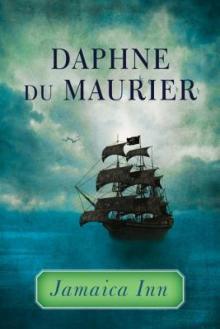 Jamaica Inn
Jamaica Inn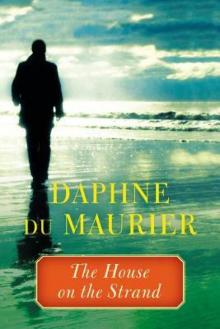 The House on the Strand
The House on the Strand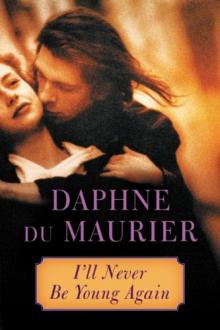 I'll Never Be Young Again
I'll Never Be Young Again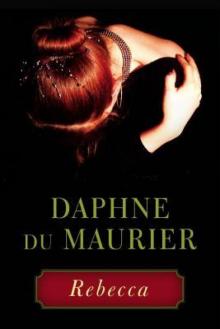 Rebecca
Rebecca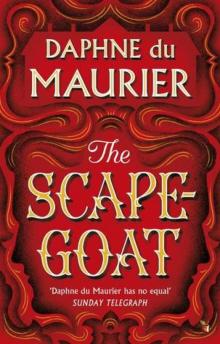 The Scapegoat
The Scapegoat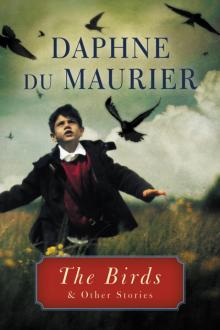 The Birds and Other Stories
The Birds and Other Stories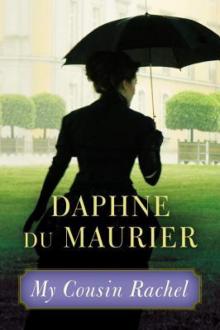 My Cousin Rachel
My Cousin Rachel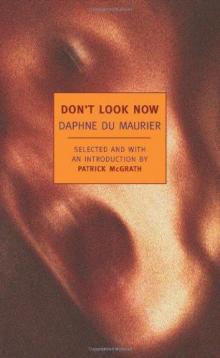 Don't Look Now
Don't Look Now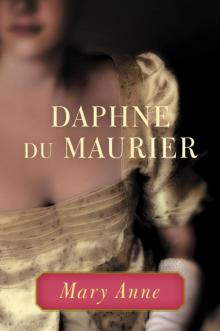 Mary Anne
Mary Anne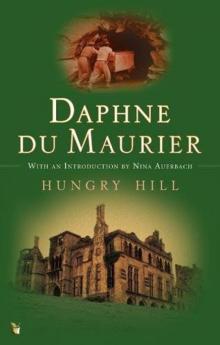 Hungry Hill
Hungry Hill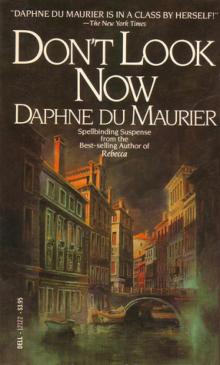 Don't Look Now and Other Stories
Don't Look Now and Other Stories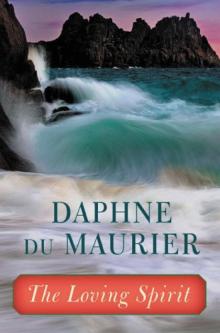 The Loving Spirit
The Loving Spirit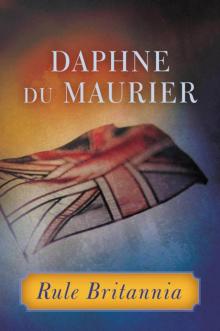 Rule Britannia
Rule Britannia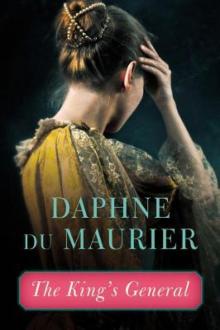 The King's General
The King's General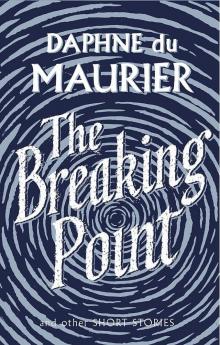 The Breaking Point: Short Stories
The Breaking Point: Short Stories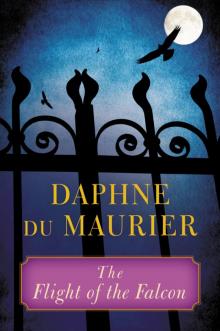 The Flight of the Falcon
The Flight of the Falcon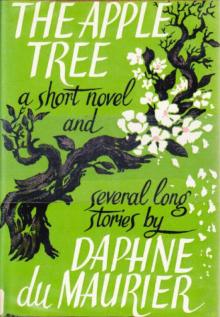 The Apple Tree: a short novel & several long stories
The Apple Tree: a short novel & several long stories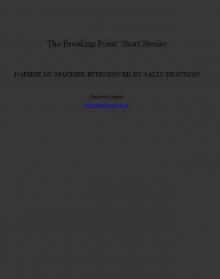 The Breaking Point
The Breaking Point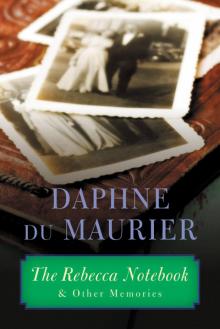 The Rebecca Notebook
The Rebecca Notebook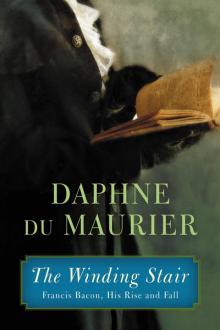 The Winding Stair: Francis Bacon, His Rise and Fall
The Winding Stair: Francis Bacon, His Rise and Fall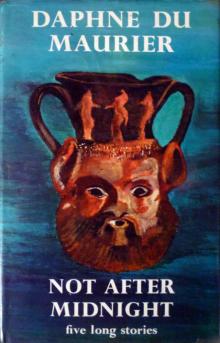 Not After Midnight & Other Stories
Not After Midnight & Other Stories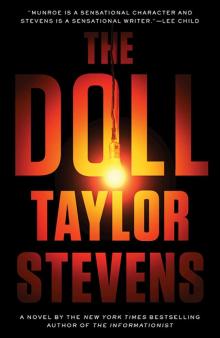 The Doll
The Doll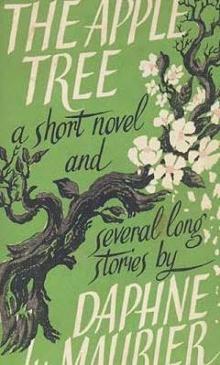 The Apple Tree
The Apple Tree